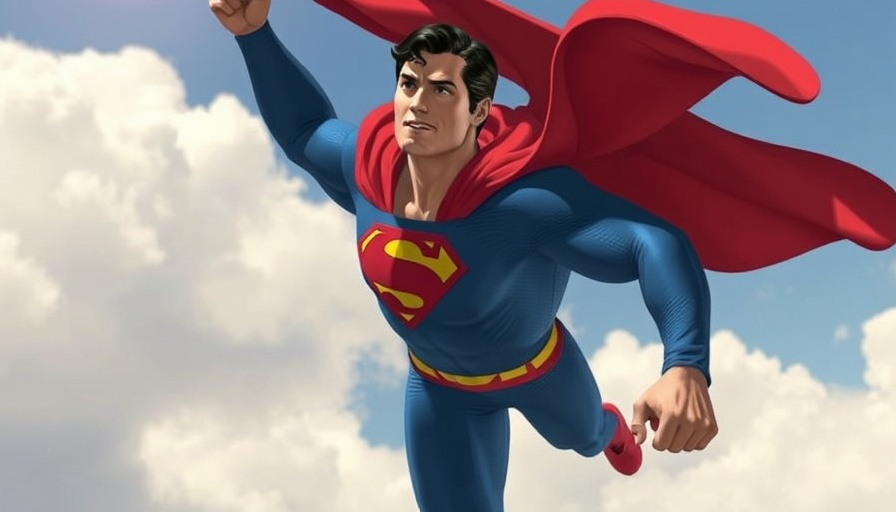
The Cultural Impact of Superman: A Deep Dive
Superman, the quintessential American superhero, has long been a symbol of strength and justice. Yet, this iconic character is undergoing a transformation that reflects deeper societal shifts. As the latest Superman film integrates contemporary issues like immigration and identity, it opens a poignant dialogue about what it means to be a hero in today's world.
Politics and Popular Culture: A New Era for Superheroes
The notion that politics is now intertwined with blockbuster films isn't new. However, the degree to which Superman's character now embraces themes such as social justice and immigration marks a significant departure from traditional superhero narratives. This transition appeals to a generation of viewers seeking stories that resonate with their lived experiences.
The Role of Media in Shaping Societal Narratives
Film can act as a mirror reflecting societal attitudes and issues. The adjustments to Superman's storylines closely coincide with ongoing discussions regarding immigration policies and global cultures. For digital nomads—a community comprised of free-spirited travelers and tech-savvy individuals—the evolving narrative offers not just entertainment, but also a commentary on the struggles and triumphs experienced by many around the globe.
A Hero for All: Superman's Relevance in the Digital Age
Today’s Superman is not just fighting villains; he is confronting questions about identity and belonging. By presenting these fresh themes, the narrative ensures relevance in an increasingly interconnected world. Many digital nomads, often familiar with different cultures and experiences, can find relatability in a character that reflects the complexities of shared human experiences.
Reflections on Diversity Through Superhero Narratives
As Superman opens avenues for discussions about race, identity, and acceptance, it also challenges the narrative around what a hero represents. The integration of diverse storylines positions Superman not just as a figure of strength, but also as a champion of inclusivity. This resonates especially with younger audiences and can spur conversations about the importance of diversity within storytelling.
Future of Cinema: The Evolution of the Superhero Genre
The landscape of cinema is shifting to reflect a more diverse and inclusive array of voices. As creators move to fortify connections with varied audiences, we can expect even more pivotal characters to emerge. This evolution may redefine traditional notions of heroism and prompt viewers to rethink the heroes they admire, making space for multiple interpretations of what it means to be a hero.
As the Superman narrative reinvents itself, it bears the weight of cultural commentary. For digital nomads and global citizens alike, engaging with these stories not only enhances entertainment but promotes understanding of complex societal challenges.
 Add Row
Add Row  Add
Add 




Write A Comment